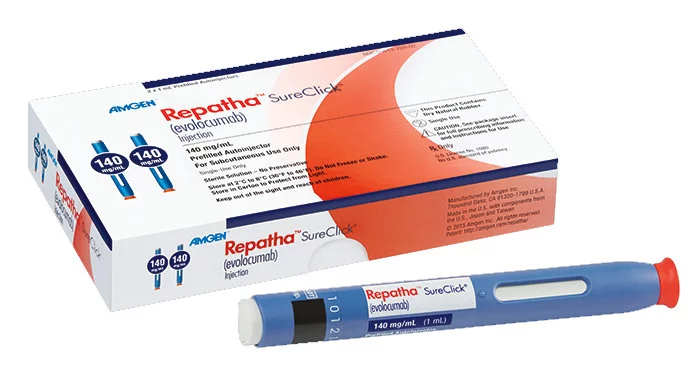Considering the risks involved with high blood pressure, you’re probably doing all you can to keep it under control. But for some people—particularly those who are overweight, have diabetes, or are at risk of developing it— medication isn’t enough. High blood pressure is also known as hypertension and is a condition where the blood flowing through your veins puts stress on your arteries and brings their pressure up. It’s not uncommon for adults to develop high blood pressure as they age, which is why everyone should know how to manage their risk factors. If you have been diagnosed with hypertension or are looking for ways to support heart health, repatha could be a great option for you. Keep reading to find out more about this prescription medication and if it’s right for you!
What is Repatha?
In the simplest terms, repatha is an injectable medication used for the treatment of high blood pressure. It’s part of a class of drugs called PCSK9 inhibitors, and it works by reducing the amount of cholesterol in the blood. Repatha is not a cure for high blood pressure, but it does allow patients to lower their blood pressure to normal levels with fewer side effects than other hypertension treatments. Repatha is approved for adults with uncontrolled hypertension, although it may be prescribed off-label to certain patient populations.
Learn More About Hypertension
If you have high blood pressure, you may be wondering where it comes from and why it happens. Blood pressure is the force that your blood puts on the walls of your arteries as it flows through them. In general, the higher your blood pressure, the greater the stress on your arteries and the more likely you are to experience health problems related to it. As the risk factors for hypertension increase, both your systolic and diastolic blood pressures rise and put you at greater risk for heart disease and other serious health problems. Repatha is a drug that can be prescribed to patients who have been diagnosed with high blood pressure. It works by reducing the amount of cholesterol in the blood, which can help to reduce blood pressure.
How does Repatha Work?

Repatha reduces the amount of cholesterol in the bloodstream, which in turn lowers blood pressure. Blood pressure is measured by two numbers on a scale: the systolic and diastolic readings. The systolic number refers to the pressure in the arteries when the heart is contracting and pumping blood out to the body. The diastolic number refers to the pressure in the arteries when the heart is relaxing between beats and refilling with blood. The greater your blood pressure, the more your blood vessels are stressed.
Over time, this stress can lead to serious health problems, including heart attacks, strokes, and kidney disease. Repatha helps to reduce blood pressure in two ways. First, it reduces the amount of cholesterol in the blood by blocking the production of a protein called PCSK9. This leads to less cholesterol being absorbed by the body’s cells, which reduces the amount found in the bloodstream. Second, it reduces the volume of blood in the body, which means that each individual blood vessel has less blood flowing through it and is less stressed.
As with any medication, repatha may cause side effects in some people. The most common side effects include joint pain and muscle pain, swelling, and bruising. Other serious side effects include infections, changes in kidney function, allergic reactions, and liver problems. You should also be aware that repatha does not reduce LDL cholesterol. A doctor may recommend taking a cholesterol-lowering medication like a statin to reduce LDL cholesterol if it is still too high after taking repatha.
Repatha for Weight Loss
Very few studies have been conducted to examine the role of repatha for weight loss, but there are many hypotheses about what could be going on. For example, repatha could reduce appetite by lowering cholesterol levels in the body, resulting in less production of the hunger hormone ghrelin. One thing that is clear is that repatha can help to control blood pressure, which is a major risk factor for obesity. Studies have shown that decreased blood pressure can reduce the risk of obesity, especially in people who are already overweight.
Repatha for Cholesterol Management
Repatha can help to reduce LDL cholesterol levels by as much as 68%, which is great news for people who are at risk of cardiovascular disease. The lower your LDL cholesterol, the lower your risk of heart disease. For people who have a high risk of cardiovascular disease, repatha can be an effective way to lower LDL cholesterol and reduce the risk of heart disease. You should be aware, though, that the long-term effects of repatha are not yet known.
Final Words: What You Need to Know Before You Take Repatha?
If you’re suffering from high blood pressure, repatha could be a great treatment option for you. However, you should know that it’s not a cure. You may need to continue to take it for the rest of your life to keep your blood pressure in check. Repatha can cause serious side effects, so it’s important to talk to your doctor about the risks and benefits of taking this medication.
